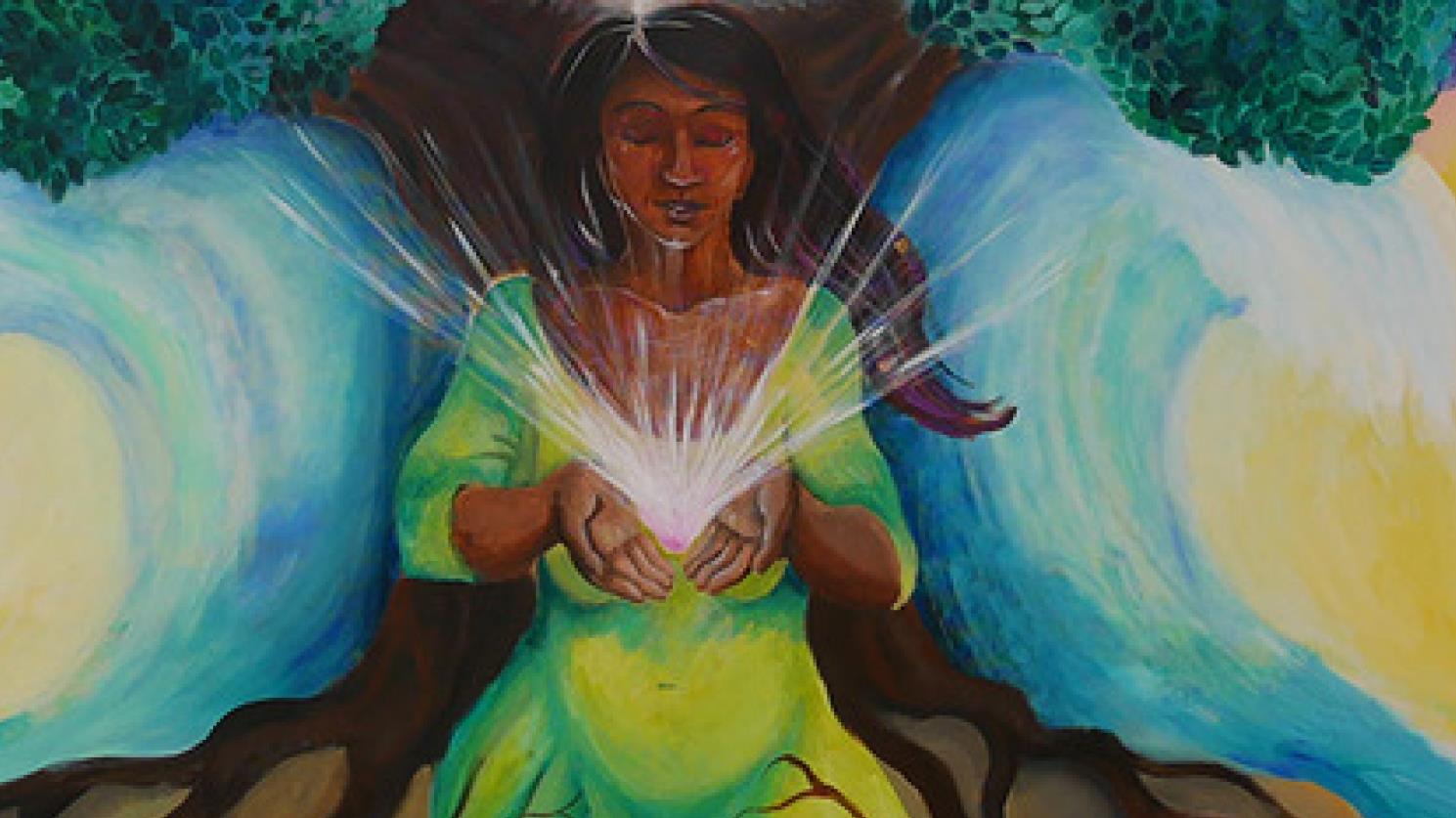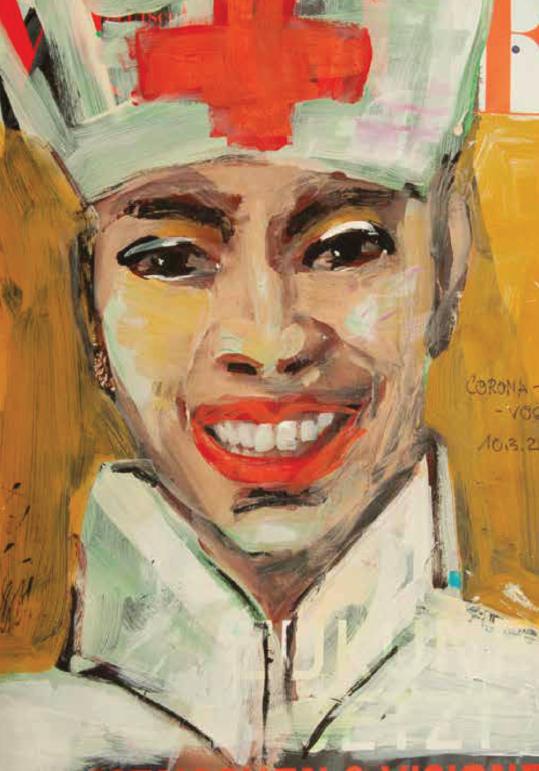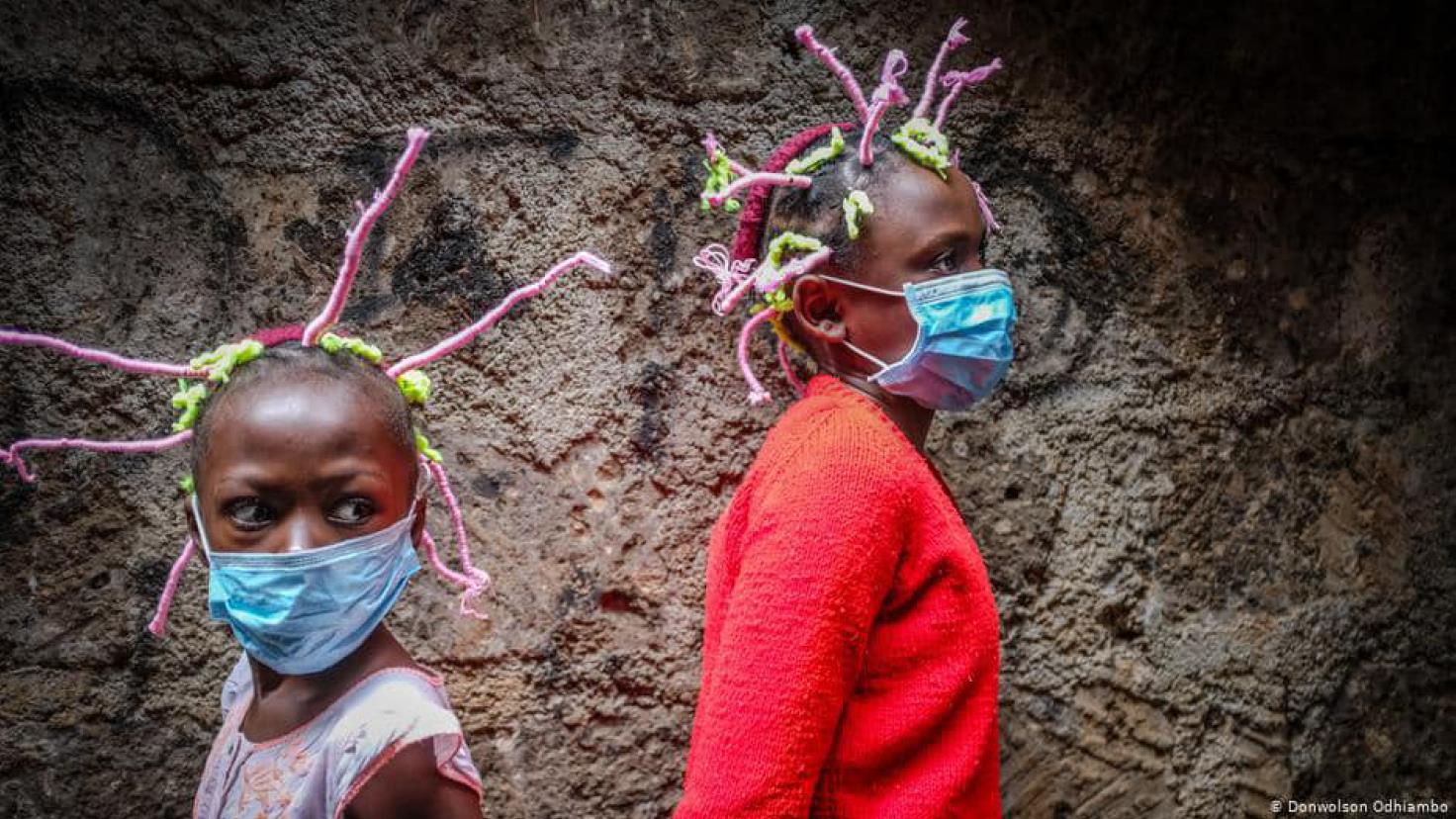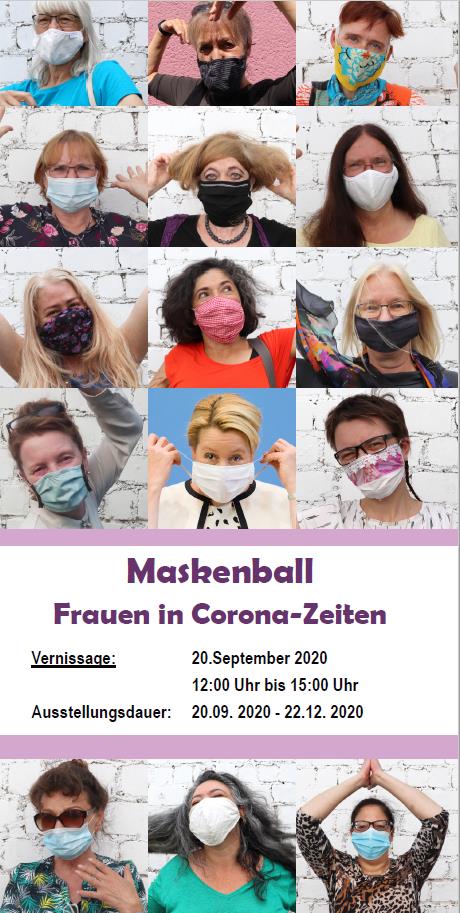
“Pangolin Moon”, Sharon Calman
The Frauenmuseum in Bonn, Germany opened the exhibition “Maskenball” (Masked Ball) on 20th September 2020.
Corona Changes our Lives
On the one hand, it is mainly women who keep our society alive in the COVID-19 crisis.
On the other hand, they are suffering increasingly the economic and social consequences. They perform significantly more unpaid care work and work more than men in insecure or low-paid jobs. In Europe, 80% of the nursing staff in hospitals and nursing homes is female. During the Corona pandemic, they were highly affected by workloads and the risk of infection. During the lockdown, significantly more mothers than fathers worked in the home office and at the same time looked after their children. It seems that in times of need traditional gender roles were quickly taken up. Additionally, in all social circles, women are increasingly affected by violence from men in their environment as a result of the curfews.

“Corona en Vogue”, Cornelia Enax
The exhibition emphasizes the importance of system-relevant activities, which are often poorly paid. It draws attention to existing disadvantages of women and girls, which are intensified by crises. In states where girls’ education is secondary, they are essentially among the early school leavers. They are thus exposed to poverty and an increased risk of sexual exploitation, unwanted pregnancy, and early forced marriage. But women are not only victims. Worldwide, there are initiatives by women who are involved in medical care, self-help projects and in the fight against „Corona racism“.
A comparative look at 1918 illustrates the burden and effects of the so called Spanish flu at the end of the First World War, which was largely concealed – at least in Germany. Among the victims were many pregnant women. This had an impact on the demographic development.

Corona hairdos, Kenia. Foto: Donwilson Odhiambo
Corona Art
As is the tradition at the Frauenmuseum Bonn, the historical-sociological part of the exhibition is supplemented and symbolized by various works by women artists who express their fear, anger or hope in relation to the pandemic, but also their burden or even their new freedom.
The situation of art and women artists does not look good: Almost every one of us artists had to cancel exhibitions and actions, despite invitations and long-term planning. Happy the ones, who could begin immediately with their work for a corona cycle – without any hesitation and despite existential worries. Thus the exhibition contains diary-like works, pictures full of pain, satirical installations with household effects, provocative nurses and the experiences of female artists from far away countries, whose situation is so different but also very similar.
Please find here the invitation to the exhibition in German.
